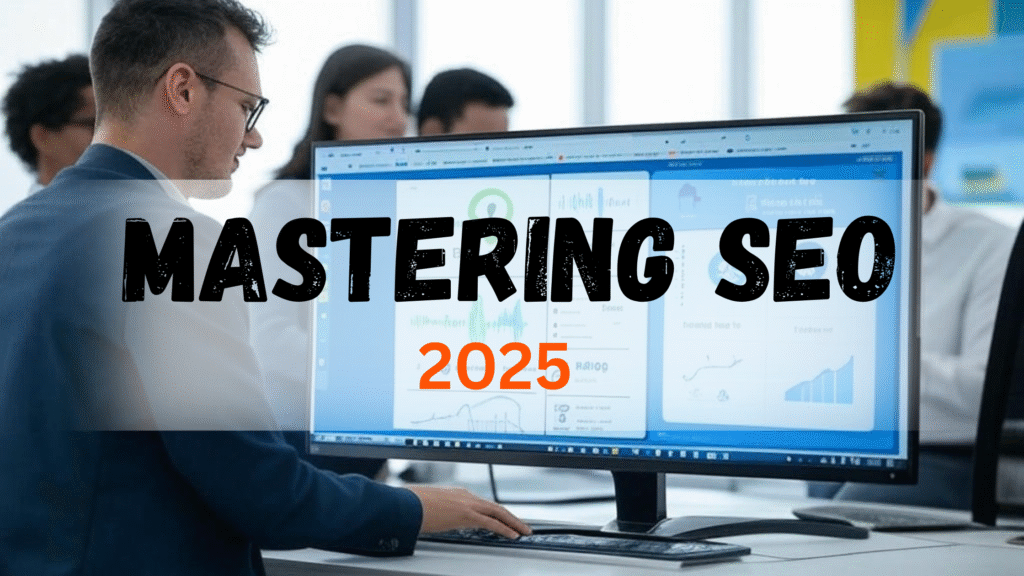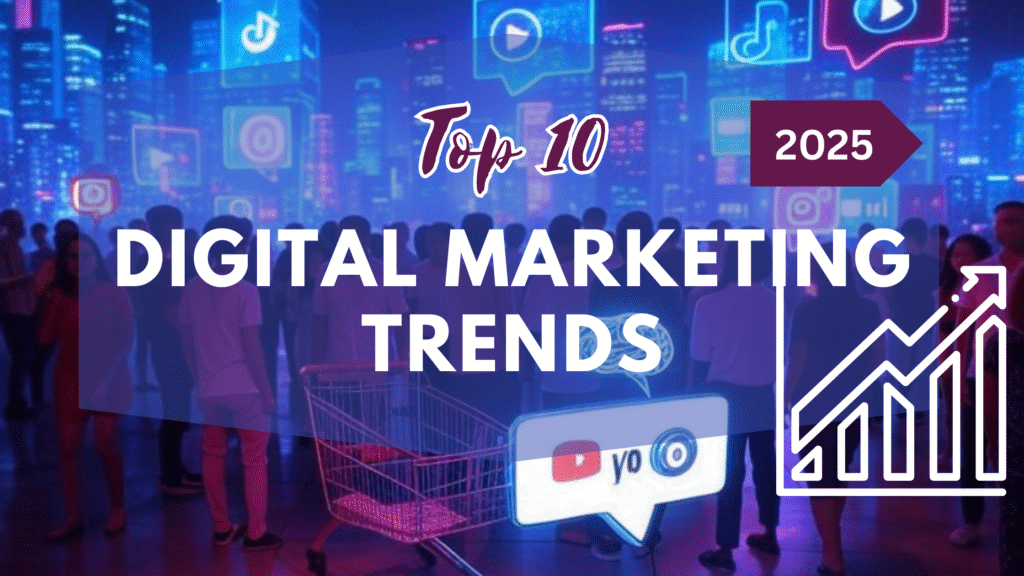Introduction
In 2025, Search Engine Optimization (SEO) is evolving rapidly, driven by the rise of voice search, AI innovations, and a mobile-first world. With 50% of searches projected to be voice-based and E-E-A-T (Experience, Expertise, Authoritativeness, Trustworthiness) shaping rankings, SEO remains a cornerstone for online success. This guide delves into why SEO matters, offers actionable strategies for 2025, and highlights key trends. Targeting high-searched keywords like “SEO 2025,” “voice search optimization,” “AI content generation,” and “E-E-A-T,” this blog empowers marketers to master the latest SEO landscape.
Why SEO Matters
SEO continues to be a critical driver of organic traffic and brand visibility in 2025. Key trends and statistics underscore its importance:
Voice search optimization is expected to account for 20% more SEO efforts, with 50% of searches being voice-activated by 2025 (Search Engine Journal).
AI-powered content generation reduces creation time by 30%, enabling faster, scalable content production (Smart Insights).
Mobile-first indexing influences 70% of site rankings, necessitating responsive designs (Smart Insights).
E-E-A-T compliance impacts 80% of user trust decisions, with search engines prioritizing authoritative content (Exploding Topics).
SEO’s role in driving 53% of website traffic highlights its enduring value for brands aiming to connect with audiences (Search Engine Journal).
Key Strategies for SEO Success in 2025
To master SEO, brands must align with emerging trends and technical advancements. Below are seven actionable strategies:
1. Optimize for Voice Search
Voice search requires natural language and question-based keywords (e.g., “What’s the best laptop?”). With 50% of searches being voice-driven, optimizing for conversational queries is essential (Search Engine Journal).
Why It Matters: Voice search enhances user experience and local visibility.
Actionable Step: Use AnswerThePublic to identify question-based keywords and create FAQ pages.
2. Leverage AI Content Generation
AI tools like ChatGPT and Jasper generate high-quality drafts, cutting content creation time by 30%. These tools also suggest SEO-friendly keywords and structures (Smart Insights).
Why It Matters: AI speeds up content production while maintaining relevance.
Actionable Step: Use Jasper to draft blog posts and refine them with human oversight.
3. Adopt Mobile-First Design
With 70% of rankings tied to mobile-first indexing, sites must load quickly (under 3 seconds) and offer responsive layouts (Smart Insights).
Why It Matters: Mobile optimization reduces bounce rates and improves rankings.
Actionable Step: Test site speed with Google PageSpeed Insights and implement AMP (Accelerated Mobile Pages).
4. Enhance E-E-A-T Signals
E-E-A-T focuses on content authority, requiring expert bylines, detailed sources, and user reviews. This impacts 80% of trust-based decisions (Exploding Topics).
Why It Matters: Strong E-E-A-T improves ranking and credibility.
Actionable Step: Add author bios and citations using Schema.org markup to signal expertise.
5. Focus on Local SEO
Local searches (e.g., “coffee near me”) are rising, with voice search amplifying this trend. Optimized Google Business Profiles and local keywords are critical.
Why It Matters: Local SEO drives foot traffic and relevance for 46% of searches (Search Engine Journal).
Actionable Step: Update your Google Business Profile with current hours and photos.
6. Implement Structured Data
Structured data (e.g., JSON-LD) helps search engines understand content, boosting rich snippets and visibility. This is increasingly important with AI-driven search algorithms.
Why It Matters: Structured data increases click-through rates by 20% (Smart Insights).
Actionable Step: Use Yoast SEO to add schema markup for products or reviews.
7. Monitor and Adapt with Analytics
Tracking keyword rankings, traffic, and user behavior with tools like Google Analytics ensures ongoing optimization. Regular audits address algorithm updates.
Why It Matters: Data-driven adjustments improve long-term performance.
Actionable Step: Set up Google Search Console to monitor performance and fix crawl errors.
Comparing SEO Tools
Tool | Key Feature | Best For |
|---|---|---|
AnswerThePublic | Voice search keywords | Conversational SEO |
Jasper | AI content generation | Content creation |
Google PageSpeed | Mobile optimization | Site speed testing |
Schema.org | E-E-A-T markup | Authority signaling |
Google Business | Local SEO | Local visibility |
Yoast SEO | Structured data | Technical SEO |
Google Search Console | Analytics and audits | Performance tracking |
Case Studies
Amazon’s Voice SEO: Amazon optimized for voice search, increasing traffic by 25% through question-based content (Exploding Topics).
Forbes’ E-E-A-T Focus: Forbes enhanced E-E-A-T with expert articles, boosting organic traffic by 18% (Smart Insights).
Challenges and Considerations
SEO in 2025 presents challenges:
Algorithm Changes: Frequent updates require constant adaptation.
Content Saturation: Standing out needs unique, high-quality content.
Technical Complexity: Mobile and voice optimization demand technical expertise.
Overcome these by staying updated via Google’s Blog, investing in quality content, and using SEO tools for technical support.
Conclusion
Mastering SEO in 2025 requires optimizing for voice search, leveraging AI, and prioritizing E-E-A-T to build trust and visibility. Adopting mobile-first designs, local strategies, and structured data further enhances rankings. Start with an audit, integrate recommended tools, and refine based on analytics. With these tactics, you’re poised to dominate the SEO landscape in 2025.


